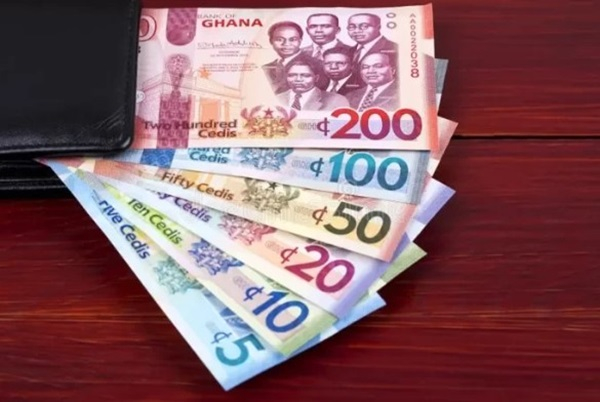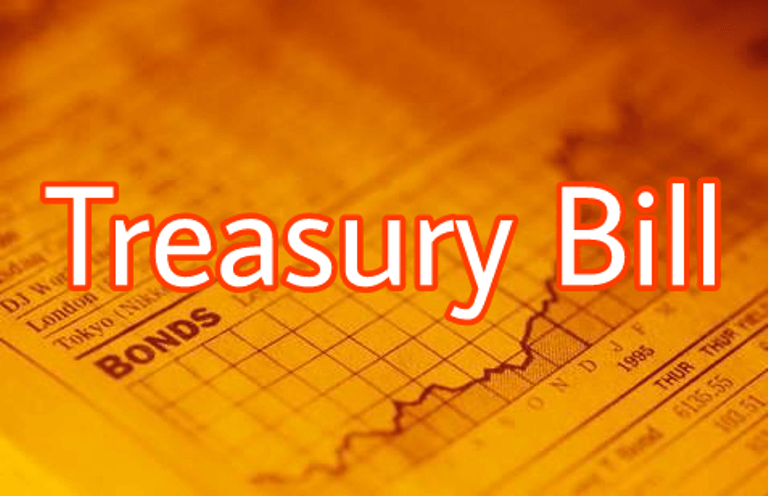Bank of Ghana intervened with $1.4bn in the forex market in 2025 first quarter
The Bank of Ghana sold $1.4 billion in foreign exchange during the first quarter of 2025, according to the latest International Monetary Fund (IMF) review of Ghana’s programme.
“The Bank of Ghana’s footprint in the FX market continued to increase. Large-scale FX intervention continued in 2025, reaching $1.4 billion in the first quarter,” the Fund noted.
This marks a sharp acceleration in market activity, surpassing the total $1 billion the Bank injected across all of 2023. In 2024, interventions rose further to $3 billion, with $2 billion sold in the fourth quarter alone, ahead of the general election.
The IMF has urged the Bank to reduce its role in the foreign exchange market and allow for greater exchange rate flexibility. It also recommended the adoption of a formal internal intervention framework to improve transparency and predictability.

When contacted by JoyNews Research in May 2025, Bank of Ghana officials attributed the elevated interventions to persistent dollar obligations in the energy sector.
These include monthly payments to independent power producers, fuel suppliers such as the West African Gas Pipeline Company, and importers of refined petroleum. Fuel imports alone average around $400 million per month, resulting in a quarterly demand of roughly $1.2 billion.
The Bank is nonetheless benefiting from strong foreign exchange inflows. Higher gold prices, increased domestic purchases under the gold purchase programme, improved remittances, and stronger cocoa earnings have lifted Ghana’s gross international reserves to $10.6 billion, equivalent to 4.7 months of import cover.
With this buffer, the Bank appears confident in continuing to support the cedi without threatening broader macroeconomic stability. The currency, which opened 2025 at 14.7 to the dollar, is now trading at 10.37, making it the best-performing currency globally so far this year.
Analysts attribute the rally partly to a weaker dollar under President Trump’s economic policies, but more significantly to Ghana’s tight fiscal stance and rising gold revenues. Still, the scale of the central bank’s interventions cannot be ignored.
At the current pace, the Bank could end the year having sold $5.6 billion in foreign exchange, nearly double the 2024 total. This would depend on a sustained pipeline of inflows, particularly from gold, where prices remain elevated.
But relying heavily on commodity windfalls is risky. Any drop in gold or cocoa prices could quickly expose the currency to pressure.
If reserves begin to falter or external shocks emerge, the risk of renewed depreciation rises. While fiscal and monetary discipline have helped so far, a more rules-based approach to forex management will be essential.
The IMF’s call for a structured internal policy reflects this view. Without it, Ghana risks swinging from intervention-led stability to sharp volatility if inflows fall short.
The cedi’s strength is encouraging. But without deliberate planning and clearer guardrails on intervention, the gains may prove fragile.
The Views, Comments, Opinions, Contributions and Statements made by Readers and Contributors on this platform do not necessarily represent the views or policy of Multimedia Group Limited.
The Views, Comments, Opinions, Contributions and Statements made by Readers and Contributors on this platform do not necessarily represent the views or policy of Multimedia Group Limited.
You may also like...
Diddy's Legal Troubles & Racketeering Trial

Music mogul Sean 'Diddy' Combs was acquitted of sex trafficking and racketeering charges but convicted on transportation...
Thomas Partey Faces Rape & Sexual Assault Charges

Former Arsenal midfielder Thomas Partey has been formally charged with multiple counts of rape and sexual assault by UK ...
Nigeria Universities Changes Admission Policies

JAMB has clarified its admission policies, rectifying a student's status, reiterating the necessity of its Central Admis...
Ghana's Economic Reforms & Gold Sector Initiatives

Ghana is undertaking a comprehensive economic overhaul with President John Dramani Mahama's 24-Hour Economy and Accelera...
WAFCON 2024 African Women's Football Tournament

The 2024 Women's Africa Cup of Nations opened with thrilling matches, seeing Nigeria's Super Falcons secure a dominant 3...
Emergence & Dynamics of Nigeria's ADC Coalition

A new opposition coalition, led by the African Democratic Congress (ADC), is emerging to challenge President Bola Ahmed ...
Demise of Olubadan of Ibadanland
Oba Owolabi Olakulehin, the 43rd Olubadan of Ibadanland, has died at 90, concluding a life of distinguished service in t...
Death of Nigerian Goalkeeping Legend Peter Rufai

Nigerian football mourns the death of legendary Super Eagles goalkeeper Peter Rufai, who passed away at 61. Known as 'Do...




